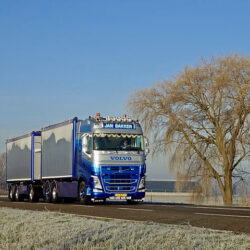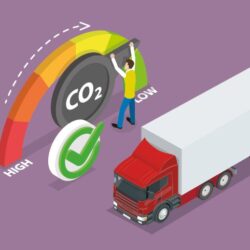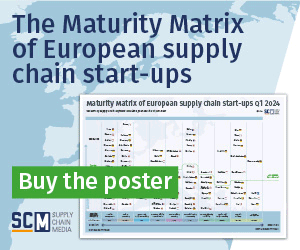Crucial role small carriers in decarbonization process

Small carriers in particular need to strengthen their current efforts to improve supply chain sustainability. Small carriers account for 99% of the companies in the European road freight sector, so they have a key role to play in the decarbonization process. They should therefore be encouraged and supported, according to a new study by Smart Freight Centre (SFC) and the Center for Sustainable Logistics and Supply Chains (CSLS) at Kühne Logistics University (KLU).
European road transport remains one of the most important sectors for decarbonization, with trucks accounting for roughly 20% of transport-related CO2 emissions. To tackle greenhouse gas emissions from freight transport, governments, shippers and logistics service providers are setting ambitious decarbonization targets and strategies. For example, the EU plans to reduce CO2 emissions in the transport sector by 90% by 2050.
The new study shows that there are significant differences in the ability of carriers to decarbonize, depending on their fleet size. While the vast majority of carriers acknowledge the importance of decarbonizing the road freight sector, carriers with larger fleets are better positioned to take concrete steps in this context. In contrast, most carriers with fewer than 20 vehicles see little or no business opportunity in decarbonizing their operations. In addition to the associated costs, other clear barriers for them include uncertainty about customer demand, emission reduction measures and new energy technologies. As a result, carriers often lack the basic knowledge needed to calculate emissions, and available operational and technical measures for fuel efficiency are often not implemented. All in all, this represents a large untapped potential for reducing costs as well as emissions.
Shortcomings
“The aim of the research was to examine European road freight decarbonization from a carrier perspective,” says Moritz Tölke, author of the study, KLU alumnus and Junior Technical Manager at SFC. “The results highlight the crucial role these carriers play, the current shortcomings and the resulting urgent need for all stakeholders to step up their engagement with this sector.”
The study points out that the involvement of small carriers will be essential to achieve the decarbonization goals. There are more than half a million companies offering road haulage services in Europe, and 99% of them have fewer than 50 employees. As the amount of road freight movements in Europe is expected to increase by almost 50% by 2050, support and incentives from industry stakeholders are urgently needed.
“The discussion on road freight decarbonization in Europe is increasingly dominated by the choice of low-carbon truck technology and energy sources – essentially a supply-side issue. This research shows that there will also be a major demand-side challenge in encouraging over half a million small carriers to switch to these new vehicles and, until then, to operate their current diesel-powered ones more energy-efficiently,” comments Alan McKinnon, KLU professor and co-author of the study.
Recommendations
The study includes recommendations to various industry stakeholders on how to support and incentivize carriers in the pursuit of lower-emission road freight. “This report points out the necessity and value of collaboration,” states Eszter Toth-Weedon, Senior Partnership Manager at SFC. “Road freight carriers, especially SMEs, need the support of freight buyers, OEMs and policymakers to ensure timely and efficient decarbonization.”
Stephan Sieber, CEO of logistics platform Transporeon, adds: “Decarbonization is already a decisive factor determining business success, and the road freight market is no exception to this. We observe that more and more shippers are requiring their carriers to invest in measures limiting CO2 emissions.” Transporeon supports such efforts with solutions such as transport assignment to best carrier, optimized route planning and real-time visibility.









